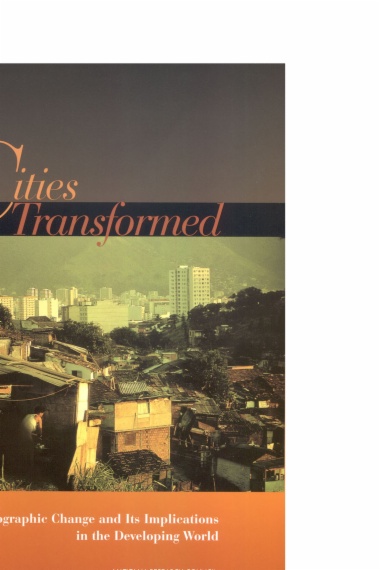Virtually all of the growth in the world's population for the foreseeable future will take place in the cities and towns of the developing world. Over the next twenty years, most developing countries will for the first time become more urban than rural. The benefits from urbanization cannot be overlooked, but the speed and sheer scale of this transformation present many challenges. A new cast of policy makers is emerging to take up the many responsibilities of urban governance—as many national governments decentralize and devolve their functions, programs in poverty, health, education, and public services are increasingly being deposited in the hands of untested municipal and regional governments. Demographers have been surprisingly slow to devote attention to the implications of the urban transformation.
Drawing from a wide variety of data sources, many of them previously inaccessible, Cities Transformed explores the implications of various urban contexts for marriage, fertility, health, schooling, and children's lives. It should be of interest to all involved in city-level research, policy, planning, and investment decisions.
- Cover
- Front Matter
- Executive Summary
- 1 Introduction
- 2 Why Location Matters
- 3 Urban Population Change: A Sketch
- 4 Urban Population Dynamics: Models, Measures, and Forecasts
- 5 Diversity and Inequality
- 6 Fertility and Reproductive Health
- 7 Mortality and Morbidity: Is City Life Good for Your Health?
- 8 The Urban Economy Transformed
- 9 The Challenge of Urban Governance
- 10 Looking Ahead
- References
- Appendices
- A Concepts and Definitions of Metropolitan Regions
- B Mathematical Derivations
- C Linking DHS Surveys to United Nations City Data
- D United Nations Estimates and Projections
- E Measuring Relative Poverty with DHS Data
- F Recommendations for the Demographic and Health Surveys
- Biographical Sketches of Panel Members and Staff
- Index
- The Committee on Population

